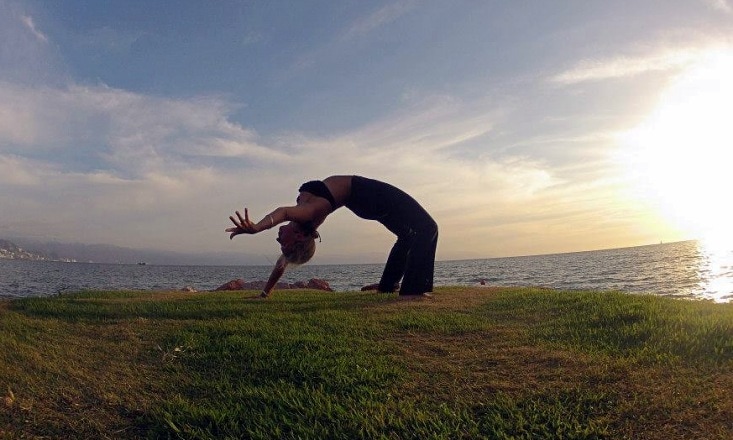The fourth chakra is that of the heart center. It serves to remind us that there is an Alchemy of Love that exists inside and around us.
In fact the, Yoga Sutra spell out for us in Chapter 1.3, “United in the heart, consciousness is steadied, then we abide in our true nature, joy. The expansion of this joy is infinite love, which encompasses and then transforms everything it touches.” *
Yoga philosophy states that joy is our true nature. We all have the right to be happy, loved, and peaceful because we are born this way. There are no conditions to meet or prerequisites to our happiness. This is the ultimate experience of unconditional love: there is plenty to go around.
“Love is a unifying force: it draws things together and keeps them in relationship. And there is no greater way to invite love than to offer it first.” ~Anodea Judith, Wheels of Life
The Heart Chakra
Also known as Anahata, which translates to "unstruck" or "that which cannot be destroyed" in Sanskrit, the heart or fourth chakra is located at the center of the chest, at the base of the sternum.
Anahata governs or intention for adoration, our right to love and to be loved, our capacity for self-love, and our social identity.
Color: Green
Element: Air
Sense: Touch
Healing Stones: Emerald, tourmaline, aventurine, malachite, rose quartz, rhodonite
Affirmation: “May I be at home in my heart. May I be free to feel my true feelings, desires, and passions.”
Mantra: “I am love.”
Psychology of Anahata
The heart chakra is where dharma resides in each of us and deals primarily with our capacity for love and devotion, openness and compassion, our ability to connect and relate well with others, self-acceptance and self-confidence, and balance and forgiveness.
An overactive anahata results in codependency, jealousy, clinginess, excessive demands, or excessive sacrificing. When underactive, this chakra can cause depression, isolation, and loneliness, judgmental and antisocial tendencies, a fear of intimacy, and a lack of empathy and narcissism.
When extremely out of balance, this chakra can bring about grief, anxiety, anger, fanaticism, excessive criticism, the inability to maintain deep relationships or to express feelings, severe codependency and poor boundaries, and addictions to marijuana, tobacco, and sugar.
To heal and bring the anahata back to balance, practice breathing exercises, journaling, psychotherapy, and yoga.
Focus on the Heart Chakra
Yoga is, after all, a way to really feel the pulse of life. This pulse or spanda mimics your own heartbeat.
Science now views heart intelligence as being on par with or even more powerful than our intellect. Our heart’s constant dialogue with other’s hearts can now be measured.
It is natural to feel each other's vibration, and this is part of what leads us to find connection and build relationships. We can try to put up barriers to this innate intelligence, or we can embrace our capacity to love and grow it bigger.
It took me many years to realize that being vulnerable opens me up to greater pathways of love and healing. Our capacity to be vulnerable is directly linked to our capacity for intimacy and love, especially the kind of unconditional love that doesn’t sit in judgment.
This ultimate state of love takes courage, but is absolutely worth it!
*Translation: Nischala Joy Devi / Image Credit: Silvia Mordini


